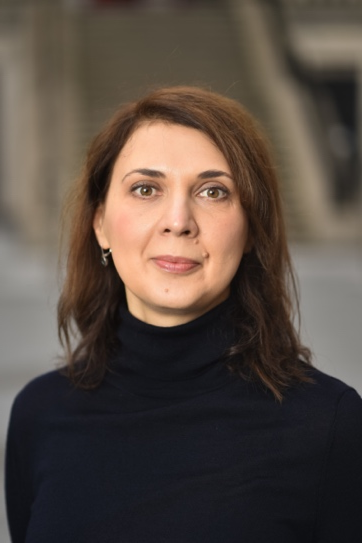Collecting, assembling, ordering: Border politics and the invisible data work of asylum

Key information
- Date
- Time
-
5:00 pm to 7:00 pm
- Venue
- Main building
- Room
- MBRG01
- Event type
- Seminar
About this event
This article proposes to understand the ‘invisible data work’ that asylum seekers must do to put together a ‘credible’ asylum application.
While the intersections between asylum and work have typically been analysed in relation to access to employment and labour conditions, we attend to the work of collecting, assembling, and ordering different forms of analogue and digital data inherent to the asylum processes. Building on feminist interdisciplinary debates on work and drawing on a selection of asylum appeals from Italy and the UK, we argue that seeking asylum entails extensive and continual invisible work that requires significant resources, effort, skills and time.
Attending to these forms of invisible work is crucial to understanding the challenges of seeking asylum beyond the migration journey and the implications of performing ‘invisible data work’ unaided and unequipped. It also counters problematic depictions of asylum seekers as passive subjects who are ‘just waiting’ for a decision to be made. Finally, rendering the collection and assemblage of data as ‘invisible work’ rather than just ‘doings’ has political implications for how we understand the resources, responsibilities and resistance to the border politics of making precarious subjects.
Organised by the Centre for Migration and Diaspora Studies
About the speakers
Lucrezia Canzutti
Lucrezia Canzutti is a Research Associate at the Department of War Studies working on the research project Security Flows (‘Enacting border security in the digital age: Political worlds of data forms, flows and frictions’), funded by the European Research Council (2019-2024) and led by Professor Claudia Aradau. The project examines the epistemic, political and ethical implications of the datafication of border security. Lucrezia holds a PhD in Politics from the University of York.
Her PhD research analysed state-diaspora relations and (non)citizenship in the ‘Global South’ through an ethnographic study of the de facto stateless Vietnamese diaspora in Cambodia.
Claudia Aradua
Claudia Aradua is Professor of International Politics in the Department of War Studies and Principal Investigator of the Consolidator Grant SECURITY FLOWS (‘Enacting border security in the digital age: Political worlds of data forms, flows and frictions’), funded by the European Research Council (2019-2024).
Her research has developed a critical political analysis of security practices. As more and more problems and people become constituted as objects and subjects of security, her research has inquired into the effects this has for political subjectivity and democracy. Her current research focuses on how digital technologies reconfigure security and surveillance practices, and how algorithms and machine learning recast relations between security, democracy and critique.



